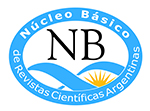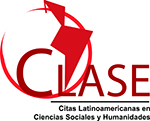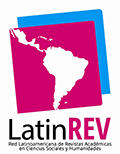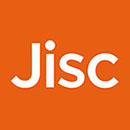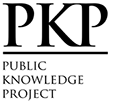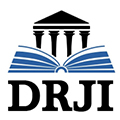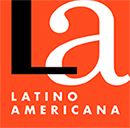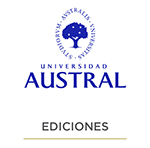The Challenges of Intellectual Property in the Traditional Expressions of Indigenous Peoples
DOI:
https://doi.org/10.26422/RIPI.2025.2200.gonKeywords:
intellectual property, traditional expressions, indigenous peoples, traditional knowledge, ancestral practicesAbstract
Traditional knowledge—which encompasses wisdom, experience, skills, and practices developed, maintained, and transmitted from generation to generation—has an intrinsic value that transcends the merely economic. This article comprehensively examines the challenges and theoretical trends facing intellectual property protection systems for the protection of traditional expressions of Indigenous peoples and traditional knowledge worldwide. To this end, it employs systematic documentary research that incorporates the dogmatic legal method and comparative law. The guiding question is what the challenges and theoretical trends are in the protection of intellectual property for traditional expressions of Indigenous peoples. The results present the challenges that limit the protection of intellectual property for traditional expressions of Indigenous peoples and the theoretical trends used for their protection. This research concludes that the protection of intellectual property contains historical barriers inherent to Indigenous peoples rooted in international and national legislation, and that challenges arise—such as the consequences of colonialism, globalization, and industrial development—that are insurmountable beyond the will of States. Alternative theoretical and methodological trends are conceived, such as the sui generis approach to the protection of traditional knowledge and traditional cultural expressions, in addition to the co-management of Indigenous peoples' cultural legacy, self-regulation, and recognition of customary law. The importance of ensuring social justice, equity, heritage preservation, and strengthening Indigenous cultural identity are also evident.
Downloads
References
Acosta, D. (2023). Interacción entre conocimientos tradicionales y patentes. La Propiedad Inmaterial, (36). 5-37. https://doi.org/10.18601/16571959.n36.01
Aditya, Z. F. y Al-Fatih, S. (2023). The legal protection system of indigenous people in Southeast Asia. Legality: Jurnal Ilmiah Hukum, 31(2), 285-309. https://doi.org/10.22219/ljih.v31i2.27619
Agung, A., Hartiwiningsih, H. y Jamin, M. (2024). Strengthening the Role of Local Government in Protecting Traditional Knowledge in Jepara Regency. En International Conference On Law, Economic & Good Governance (IC-LAW 2023) (pp. 213-216). Atlantis Press. https://doi.org/10.2991/978-2-38476-218-7_34
Al Furqon, M. S. (2024) Safeguarding Heritage: Preserving Traditional Knowledge in Global Patent Law. International Journal of Current Science Research and Review, 7(6), 3556-3566. https://doi.org/10.47191/ijcsrr/V7-i6-05
Alexander, G. S., Peñalver, E. M., Singer, J. W. y Underkuffler, L. S. (2009). A Statement of Progressive Property. Cornell Law Review, 94(4), 743-744. https://surl.li/zkxjsa
Alvarado, N. E. (2016). Concepto de Propiedad intelectual colectiva de pueblos y comunidades indígenas. Cuestiones Políticas, 32(57). https://surl.li/zttuuq
Al-Zadjali, Z. (2024). The significance of art in revealing a culture’s identity and multiculturalism. Open Journal of Social Sciences, 12(1), 232-250. https://doi.org/10.4236/jss.2024.121015
Andhika, M. (2024). Safeguarding Intellectual Property in the Post-Cultural Advancement Law Era in Indonesia: Preserving Traditional Knowledge. International Journal of Current Science Research and Review, 7(6), 3546-3555. https://doi.org/10.47191/ijcsrr/V7-i6-04
Benyei, P., Skarlatidou, A., Argyriou, D., Hall, R., Theilade, I., Turreira, N., Latreche, D., Albert, A., Berger, D., Cartró, M., Chang, J., Chiaravalloti, R., Cortesi, A., Danielsen, F., Haklay, M. (2023), Challenges, strategies, and impacts of doing citizen science with marginalised and indigenous communities: reflections from project coordinators. Citizen Science: Theory and Practice, 8(1). http://doi.org/10.5334/cstp.514
Byrne, J. P. (2024). Cultural Property: “Progressive Property in Action”. Texas A&M Journal of Property Law, 10(1), 1-37. http://dx.doi.org/10.37419/jpl.v10.i1.1
Carmona, R., Reed, G., Thorsell, S., Dorough, D. S., MacDonald, J. P., Rai, T. B. y Sanago, G. A. (2023). Analysing engagement with indigenous peoples in the intergovernmental panel on climate Change’s sixth assessment report. npj Climate Action, 2(1), 29. https://doi.org/10.1038/s44168-023-00048-3
Ceballos, J. (2020). Necesidad de protección a los conocimientos tradicionales. Especial mención a las expresiones culturales tradicionales. Especial mención a las expresiones culturales tradicionales. Revista La Propiedad Inmaterial, 29(25), 25-75. https://doi.org/10.18601/16571959.n29.02
Chowdhury, J. S., Vadevelu, K., Hatta, Z. A., Al Mamun, A. y Bexci, M. S. (2024). A philosophical appraisal of indigenous knowledge and its role in Malaysia, India, and Bangladesh: Including the excluded. En Behera, S. K., Ibrahim, A. H. y Romdhani, F. (Eds.), Inclusivity and indigeneity in education for sustainable development (pp. 112-128). IGI Global. https://doi.org/10.4018/979-8-3693-2802-6.ch008
Comité de Derechos Económicos, Sociales y Culturales. (2009). Observación general Nº 21 Derecho de toda persona a participar en la vida cultural (artículo 15, párrafo 1 a), del Pacto Internacional de Derechos Económicos, Sociales y Culturas. Consejo Económico y Social. https://surl.li/dztnqa
Corte Interamericana de Derechos Humanos. (2003). Opinión Consultiva OC-18/03. Condición jurídica y derechos de los migrantes indocumentados, 17. https://surl.li/tzxnbq
Cottier, T. y Panizzon, M. (2004). Legal perspectives on traditional knowledge: The case for intellectual property protection. Journal of International Economic Law, 7(2), 371-399. https://ssrn.com/abstract=1093110
Da Silva, C., Pereira, F. y Amorim, J. P. (2024). The integration of indigenous knowledge in school: a systematic review. Compare: A Journal of Comparative and International Education, 54(7), 1210-1228. https://doi.org/10.1080/03057925.2023.2184200
De la Cruz, R. (2010). Conocimientos tradicionales, biodiversidad y derechos de propiedad intelectual-Patentes. Revista Afese, 54, 77-96. https://surl.li/wszism
De la Cruz, R., Muyuy, G., Viteri, A., Flores, G. González, J., Mirabal, J. y Guimaraez, R. (2005). Elementos para la protección sui generis de los conocimientos tradicionales colectivos e integrales desde la perspectiva indígena. https://surli.cc/hxjkzf
Fahmi, C. (2024). The application of international cultural rights in protecting Indigenous peoples’ land property in Indonesia. AlterNative: An International Journal of Indigenous Peoples, 20(1), 157-166. https://doi.org/10.1177/11771801241235261
Fernández-Llamazares, A., Lepofsky, D., Lertzman, K., Armstrong, C. G., Brondizio, E. S., Gavin, M. C. … y Vaughan, M. B. (2021). Scientists' warning to humanity on threats to indigenous and local knowledge systems. Journal of Ethnobiology, 41(2), 144-169. https://doi.org/10.2993/0278-0771-41.2.144
Ford, J. D., King, N., Galappaththi, E. K., Pearce, T., McDowell, G. y Harper, S. L. (2020). The resilience of indigenous peoples to environmental change. One Earth, 2(6), 532-543. https://doi.org/10.1016/j.oneear.2020.05.014
Fourmile, H. (2020). Who owns the past? Aborigines as captives of the archives. En Chapman, V. y Read, P. (Eds.), Terrible Hard Biscuits (pp. 16-27). Routledge. https://doi.org/10.4324/9781003137160
Garber, P. A., Estrada, A., Klain, V. y Bicca-Marques, J. C. (2024). An urgent call-to-action to protect the nonhuman primates and Indigenous Peoples of the Brazilian Amazon. American Journal of Primatology, 86(3), e23523. https://doi.org/10.1002/ajp.23523
Gebara, M. F., Ramcilovic-Suominen, S. y Schmidlehner, M. F. (2023). Indigenous Knowledge in the Amazon's Bioeconomy: Unveiling Bioepistemicide through the case of Kambo Medicine. Forest Policy and Economics, 154, 103012. https://doi.org/10.1016/j.forpol.2023.103012
Gobierno de México. (2024). Acuerdo por el que se expide el Catálogo Nacional de Pueblos y Comunidades Indígenas y Afromexicanas. Instituto Nacional de los Pueblos Indígenas. https://www.gob.mx/inpi/documentos/124406
Gobierno de México. (2025). Convocatoria al Foro de Consulta a los Pueblos Indígenas y Afromexicano sobre el Plan Nacional de Desarrollo (PND) 2025-2030. Instituto Nacional de los Pueblos Indígenas. https://surl.li/utoovq
Gómez-Sánchez, D. (2024). “Our Human Rights are Our Land”: Reconceptualising the Right to Property from an Indigenous Perspective. Reimagining Legal Pluralism in Africa: Balancing Indigenous, State, and Religious Laws, 80, 311-360. https://doi.org/10.1163/9789004696747_011
Grey, S. y Kuokkanen, R. (2020). Indigenous governance of cultural heritage: searching for alternatives to co-management. International Journal of Heritage Studies, 26(10), 919-941. https://doi.org/10.1080/13527258.2019.1703202
Haryati, D. H., Sunaryo, S., Putri, R. W. y Kasmawati. (2024) Indonesian Legal Protection of Traditional Knowledge as Community Identity. International Journal of Multicultural and Multireligious Understanding, 11(5), 303-309. https://surl.lu/xrsvdu
Houghton, J. (2024). A Tort of Misappropriation of Culture. Torts Law Journal, 29. 1-27. https://surli.cc/spdvnr
Huntley, J. y Wallis, L. A. (2023). Case Study: The Destruction of Australian Aboriginal Heritage and Its Implications for Indigenous Peoples Globally. En González Zarandona, J. A., Cunliffe, E. y Saldin, M. (Eds.), The Routledge Handbook of Heritage Destruction (pp. 384-394). Routledge. https://doi.org/10.4324/9781003131069-34
Kanyabuhinya, B. y Athanas, J. L. (2021). Protection of traditional knowledge and traditional cultural expressions in mainland Tanzania. The Eastern African Law Review, 48(2). https://surl.lu/nlqwva
Kariuki, F. (2023). Traditional Governance Institutions and the Holistic Protection of Traditional Knowledge. En Pineschi, L. (Ed.), Cultural Heritage, Sustainable Development and Human Rights (pp. 255-277). Routledge. https://doi.org/10.4324/9781003357704
Kennedy, C. M., Fariss, B., Oakleaf, J. R., Garnett, S. T., Fernández-Llamazares, A., Fa, J. E., Baruch-Mordo, S. y Kiesecker, J. (2023). Indigenous Peoples’ lands are threatened by industrial development; conversion risk assessment reveals need to support Indigenous stewardship. One Earth, 6(8), 1032-1049. https://doi.org/10.1016/j.oneear.2023.07.006
Khan, B. (2024). Intellectual property, development, and inclusiveness: A postcolonial critique. En Sappa, C. (Ed.), Research Handbook on Intellectual Property Rights and Inclusivity (pp. 48-73). Edward Elgar Publishing. https://doi.org/10.4337/9781803927268
Koto, I. (2024). The Potential Of Traditional Knowledge As An Improvement of the Welfare of Communal Communities. DE LEGA LATA: Jurnal Ilmu Hukum, 9(2), 162-169. https://surli.cc/dponds
Latulippe, N. y Klenk, N. (2020). Making room and moving over: knowledge co-production, Indigenous knowledge sovereignty and the politics of global environmental change decision-making. Current opinion in environmental sustainability, 42, 7-14. https://doi.org/10.1016/j.cosust.2019.10.010
Lehtinen, L. M. (2022). Propiedad intelectual y sostenibilidad: la protección de los conocimientos tradicionales. Cuadernos del Centro de Estudios en Diseño y Comunicación. Ensayos, (106), 185-203. https://dx.doi.org/10.18682/cdc.vi106.4040
León, S. (2018). The legal protection of traditional knowledge in the legal system of international and Ecuadorian intellectual property. Empowerment or regularization? Deusto Journal of Human Rights, (2), 49-70. https://doi.org/10.18543/djhr-2-2017pp49-70
M’sɨt No’kmaq, A., Beazley, K. F., Hum, J., Joudry, S., Papadopoulos, Pictou, S; Rabesca, J. Young, L. y Zurba, M. (2021). “Awakening the sleeping giant”: re-Indigenization principles for transforming biodiversity conservation in Canada and beyond. Facets, 6(1), 839-869. https://doi.org/10.1139/facets-2020-0083
Mc Cartney, A. M., Anderson, J., Liggins, L., Hudson, M. L., Anderson, M. Z., TeAika, B., Geary, J., Cook-Deegan, R., Patel, H.R. y Phillippy, A. M. (2022). Balancing openness with Indigenous data sovereignty: An opportunity to leave no one behind in the journey to sequence all of life. Proceedings of the National Academy of Sciences, 119(4), e2115860119. https://doi.org/10.1073/pnas.2115860119
Meyer, C. y Naicker, K. (2023). Collective intellectual property of Indigenous peoples and local communities: exploring power asymmetries in the rooibos geographical indication and industry-wide benefit-sharing agreement. Research Policy, 52(9), 104851. https://doi.org/10.1016/j.respol.2023.104851
Mugabe, J. (1999). Intellectual Property Protection, and Traditional Knowledge: An exploration in international policy discourse. ACTS Press. https://surl.gd/huevmm
Mulalap, C. Y., Frere, T., Huffer, E., Hviding, E., Paul, K., Smith, A. y Vierros, M. K. (2020). Traditional knowledge and the BBNJ instrument. Marine policy, 122, 104103. https://doi.org/10.1016/j.marpol.2020.104103
Muñoz, T. M., Giraldo, J. y López, M. D. S. (2019). Mecanismos de protección de los conocimientos tradicionales: el caso de Colombia. Revista Derecho del Estado, (43), 235-264. https://doi.org/10.18601/01229893.n43.09
Nakitare, J., Otike, F. y Mureithi, L. (2024). Harnessing the economic value of indigenous knowledge in Kenya: a qualitative review of the legal framework. Global Knowledge, Memory and Communication, Vol. ahead-of-print No. ahead-of-print. https://doi.org/10.1108/GKMC-09-2023-0324
Nepal, T. K. (2023). Traditional ecological knowledge (TEK) and its importance in the Himalayan Kingdom of Bhutan. En Chan Rai, S. y Mishra, P. K. (Eds.), Traditional Ecological Knowledge of Resource Management in Asia (pp. 317-332). Cham: Springer International Publishing. https://surl.li/ywsxac
Nulkar, G. (2024). Traditional Knowledge and Sustainable Livelihoods. En Nulkar, G. (Ed.), The Economics of Sustainable Development: A Machine-generated Literature Overview (pp. 129-176). Springer Nature Singapore. https://doi.org/10.1007/978-981-99-7379-8_4
Organización de Estados Americanos. (1978). Convención Americana sobre Derechos Humanos. https://surl.li/xtknva
Organización Mundial de la Propiedad Intelectual. (1883). Convenio de París para la Protección de la Propiedad Industrial. https://surl.li/bjqhhn
Organización Mundial de la Propiedad Intelectual. (1886). Convenio de Berna para la Protección de las Obras Literarias y Artísticas. https://surl.li/hlrhox
Organización Mundial de la Propiedad Intelectual. (11 de diciembre de 2019). Un tribunal australiano pone freno a la venta de souvenirs aborígenes falsificados. Revista de la OMPI. https://surli.cc/lazgel
Organización Mundial de la Propiedad Intelectual. (18 de diciembre de 2020). La ética en la propiedad intelectual y cultural de las comunidades indígenas: Australia establece nuevos protocolos. Revista de la OMPI. https://surli.cc/pqmfsm
Organización Mundial de la Propiedad Intelectual. (2024). Conocimientos tradicionales. https://surl.lu/hkwdwc
Parlamento Europeo. (1998). Directiva del Consejo N° 98/44/CE, de 6 de julio de 1998. https://surl.gd/rpaeux
Penteado, A. y Prasad, S. (2024). Indigenous Peoples, Intellectual Property and Sustainability. En Penteado, A., Chakrabarty, S. P. y Shaikh, O. H. (Eds.,), Traditional Knowledge and Climate Change: An Environmental Impact on Landscape and Communities (pp. 269-281). Springer Nature Singapore. http://dx.doi.org/10.1007/978-981-99-8830-3_12
Phillips, F. K. (2016). Intellectual property rights in traditional knowledge: enabler of sustainable development. Utrecht Journal of International and European Law, 32(1). https://doi.org/10.5334/ujiel.283
Prasad, S. y Penteado, A. (2024). Towards a Better Access and Benefit Sharing Mechanism to Protect Traditional Knowledge in India: A Platter in the Offering. En Penteado, A., Chakrabarty, S. P. y Shaikh, O. H. (Eds.), Traditional Knowledge and Climate Change: An Environmental Impact on Landscape and Communities (pp. 313-329). Springer Nature Singapore. http://dx.doi.org/10.1007/978-981-99-8830-3_14
Prieto, D. (2024). Colonialismo tóxico: territorios en sacrificio y crisis ecológica por la contaminación. Raízes: Revista de Ciências Sociais e Econômicas, 44(2), 191-209. https://doi.org/10.37370/raizes.2024.v44.892
Rai, S. C. y Mishra, P. K. (2023). Traditional ecological knowledge and resource management: a conceptual framework. En Chan Rai, S. y Mishra, P. K. (Eds.), Traditional ecological knowledge of resource management in Asia (pp. 1-11). Springer International Publishing. http://dx.doi.org/10.1007/978-3-031-16840-6_1
Rakeiora, T. y Hall, C. M. (2024). Understanding indigenous knowledge in contemporary consumption: a framework for indigenous market research knowledge, philosophy, and practice from aotearoa. Knowledge, 4(2), 321-330. https://doi.org/10.3390/knowledge4020018
Rasmussen, J. B. (2023). Advancing environmental justice through the integration of traditional ecological knowledge into environmental policy. Challenges, 14(1), 1-11. https://doi.org/10.3390/challe14010006
Redvers, N., Aubrey, P., Celidwen, Y. y Hill, K. (2023). Indigenous Peoples: Traditional knowledges, climate change, and health. PLOS Glob Public Health, 3(10), e0002474. https://doi.org/10.1371/journal.pgph.0002474
Robinson, D. F. y Raven, M. (2020). Recognising Indigenous customary law of totemic plant species: Challenges and pathways. The Geographical Journal, 186(1), 31-44. https://doi.org/10.1111/geoj.12320
Robinson, J. M., Gellie, N., MacCarthy, D., Mills, J. G., O'Donnell, K. y Redvers, N. (2021). Traditional ecological knowledge in restoration ecology: a call to listen deeply, to engage with, and respect Indigenous voices. Restoration Ecology, 29(4), e13381. https://doi.org/10.1111/rec.13381
Rowlands, M. (2020). Cultural rights and wrongs: Uses of the concept of property. En Verdery, K. y Humphrey, C. (Eds.), Property in Question (pp. 207-226). Routledge. https://doi.org/10.4324/9781003086451
Sakapaji, S. C., García Molinos, J., Parilova, V., Gavrilyeva, T. y Yakovleva, N. (2024). Navigating legal and regulatory frameworks to achieve the resilience and sustainability of indigenous socioecological systems. Resources, 13(4), 56, pp. 1-24. https://doi.org/10.3390/resources13040056
Salazar, D. O. (2011). Propiedad intelectual y conocimientos tradicionales indígenas: bases para un proyecto de decisión andina. Editorial Académica Española.
Salazar. D. (2004). Conocimientos tradicionales de los pueblos indígenas. Revista Propiedad Intelectual, 4(6-7), 283-311. https://surl.li/senoow
Salinding, M. B. y Irawan, A. (2024). Legal Protection of Traditional Knowledge of Indigenous Peoples in Obtaining Economic Benefits, Human Rights Perspertive. Mahadi: Indonesia Journal of Law, 3(2), 122-128. https://surl.li/eakemf
Sandoval, E. (2021). Sentipensar intercultural y metodología para la sustentabilidad de desarrollos otros. Ediciones de la Universidad Autónoma Indígena de México. https://secuencia.mora.edu.mx/Secuencia/article/view/2311
Scovazzi, T. (2024). Sustainable Development and Intangible Cultural Heritage. En Pineschi, L. (Ed.), Cultural Heritage, Sustainable Development and Human Rights (pp. 213-232). Routledge. https://doi.org/10.1007/978-3-319-08527-2_4
Secretaria General de la Organización de Naciones Unidas. (2021). Decenio de las Naciones Unidas para la Restauración de los Ecosistemas 2021-2030. https://surl.li/vmyqyg
Secretaria General de la Organización de Naciones Unidas. (1976). Pacto Internacional de Derechos Económicos, Sociales y Culturales. https://surl.li/ystrxn
Secretaria General de la Organización de Naciones Unidas. (1992). Convenio sobre la Diversidad Biológica. https://www.cbd.int/convention/text
Secretaria General de la Organización de Naciones Unidas. (2007). Declaración de las Naciones Unidas sobre los Derechos de los Pueblos Indígenas. https://surl.li/qpugmu
Secretaria General del Convenio sobre la Diversidad Biológica. (2010). Protocolo de Nagoya sobre acceso a los recursos genéticos y participación justa y equitativa en los beneficios que se deriven de su utilización al Convenio Sobre la Diversidad Biológica. https://surl.li/fnmdrb
Sierra, A. (2022). Aciertos y defectos de la protección jurídica de los conocimientos tradicionales en el Perú. IUS ET VERITAS, (65), 215-232. https://doi.org/10.18800/iusetveritas.202202.014
Smith, C., Burke, H. y Ward, G. K. (2020). Globalisation and indigenous peoples: Threat or empowerment? En Indigenous cultures in an interconnected world (pp. xviii-24). Routledge. http://dx.doi.org/10.4324/9781003116097-1
Sugeng, S., Aidy, Romasindah, W. y Cardenas, A. (2024). Intellectual Property Rights in Agriculture: Plant Variety Protection and Food Security. Audito Comparative Law Journal, 5(2), 66-91. https://doi.org/10.22219/aclj.v5i2.33097
Thiruthy, N. y Thaninayagam, K. (2024). Perception analysis of TCE holders about ownership, possession, use, misuse and misappropriation in India. Journal of Intellectual Property Law and Practice, 19(11), 821-833. https://surl.li/kpvwrw
UNESCO. (2003). Convención para la salvaguardia del patrimonio cultural inmaterial. https://surl.li/znnlhn
Villa, C., Mascarenhas, F. y Lopes, L. (2023). The Brazilian Atlantic Forest genetic resources in patents and the challenges to control the economic use of biodiversity. World Patent Information, 74, 102218. https://doi.org/10.1016/j.wpi.2023.102218
Waelde, C. (2024). Private Law-Making, Self-Regulation and Heritage. En Lixinski, L. y Morisset, L. K. (Eds.), The Routledge Handbook of Heritage and the Law (pp. 428-441). Routledge. https://doi.org/10.4324/9781003149392
Williamson, B., Provost, S. y Price, C. (2023). Operationalising Indigenous data sovereignty in environmental research and governance. Environment and planning F, 2(1-2), 281-304. https://doi.org/10.1177/26349825221125496
Zhang, Y., Zhang, H., Ullah, M., Nazir, S. y Chun, Z. (2024). Intellectual property protection in the oil, gold sectors and mineral resources rent on indigenous populations: Preserving innovation and value. Resources Policy, 95, 105090. https://doi.org/10.1016/j.resourpol.2024.105090
Downloads
Published
Issue
Section
License
This license allows the copy, distribution, exhibition and representation of the work provided authorship is acknowledged and the work is properly quoted. Commercial use of the original work or the generation of derived works are not allowed.
The authors hereby guarantee the right to the first publication of the work to the Revista Iberoamericana de la Propiedad Intelectual.



